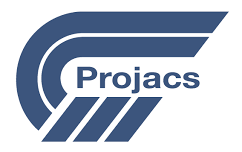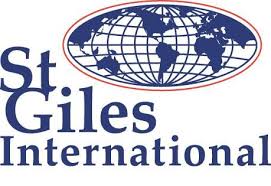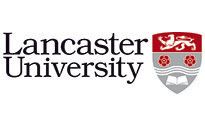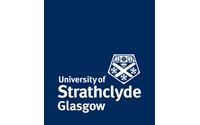
Strategies for Maintenance Planning the Reliability Methodologies Recommendations, Execution Challenges
Course ID: 2507140101117EGI
Course Dates : 14/07/25 Course Duration : 5 Studying Day/s Course Location: London, UK
Language: Bilingual
Course Category: Professional and CPD Training Programs
Course Subcategories: Operations and Process Excellence
Course Certified By: * Projacs Academy
* Professional Training and CPD Programs
Certification Will Be Issued From :
KSA
Course Fees: £4,838.34
Vat Not Included in the price. VAT may vary depending on the country where the course or workshop is held.
Click to Pay
Date has passed please contact us Sales@e-s-hub.com
Course Information
Introduction
Maintenance planning and reliability methodologies are cornerstones of operational excellence in industries ranging from manufacturing to energy, healthcare, and transportation. These disciplines ensure that assets perform optimally, downtime is minimized, and costs are controlled—critical factors in maintaining competitive advantage. However, the complexity of modern systems, coupled with evolving technological advancements, has made it increasingly challenging for organizations to implement effective maintenance strategies. This course addresses these challenges by equipping participants with the tools, frameworks, and insights necessary to design and execute robust maintenance plans while integrating reliability-centered methodologies.
The gap between theoretical knowledge and practical execution often hinders the successful implementation of maintenance strategies. For instance, many organizations struggle to balance proactive maintenance with reactive responses, leading to inefficiencies and increased operational risks. Additionally, the lack of standardized approaches to reliability analysis can result in inconsistent outcomes. By drawing on established frameworks such as Reliability-Centered Maintenance (RCM), Total Productive Maintenance (TPM), and Failure Mode and Effects Analysis (FMEA), this course bridges the divide between theory and practice, enabling participants to align their strategies with industry best practices.
Mastering the content of this course offers significant benefits for both individuals and organizations. For professionals, it enhances career prospects by building expertise in a high-demand area of operations management. Organizations, on the other hand, stand to gain through improved asset performance, reduced downtime, and enhanced safety. Consider the case of a global energy company that implemented RCM principles across its facilities, resulting in a 20% reduction in unplanned maintenance costs and a 15% increase in equipment availability. Such real-world examples underscore the transformative potential of well-executed maintenance and reliability strategies.
The course also aligns with emerging industry trends, such as the integration of predictive analytics and the Internet of Things (IoT) into maintenance practices. As industries move toward smart manufacturing and Industry 4.0, the ability to leverage data-driven insights for maintenance planning becomes indispensable. Participants will explore how advanced technologies can complement traditional methodologies, ensuring that their organizations remain at the forefront of innovation. Furthermore, the course emphasizes sustainability, highlighting how efficient maintenance practices contribute to environmental stewardship by reducing waste and energy consumption.
Challenges such as resource constraints, skill gaps, and resistance to change are common barriers to effective maintenance planning. Through interactive discussions, case studies, and hands-on exercises, participants will learn how to navigate these obstacles. For example, one module examines a scenario where a manufacturing plant faced pushback from staff during the transition to TPM. By applying change management principles and fostering a culture of continuous improvement, the organization successfully overcame resistance and achieved measurable results.
Ultimately, this course is designed to empower participants to become strategic leaders in maintenance and reliability. By blending foundational knowledge with advanced application techniques, it provides a comprehensive learning experience that is both intellectually stimulating and practically relevant. Whether you are seeking to enhance your professional capabilities or drive organizational success, this program offers the tools and insights needed to excel in an increasingly complex and dynamic field.
Objectives
By attending this course, participants will be able to:
Analyze the principles of Reliability-Centered Maintenance (RCM) and apply them to develop tailored maintenance strategies for specific assets.
Evaluate the effectiveness of existing maintenance plans using key performance indicators (KPIs) and propose actionable improvements.
Design and implement Total Productive Maintenance (TPM) initiatives that foster collaboration between operations and maintenance teams.
Apply Failure Mode and Effects Analysis (FMEA) to identify potential failure points and mitigate risks proactively.
Implement predictive maintenance techniques using IoT-enabled tools and data analytics to optimize asset performance.
Assess the impact of maintenance strategies on sustainability goals and recommend eco-friendly practices.
Develop a comprehensive change management plan to address cultural and organizational barriers to maintenance transformation.
Who Should Attend?
This course is ideal for:
Maintenance managers, engineers, and technicians responsible for overseeing asset performance and reliability.
Operations managers seeking to improve collaboration between maintenance and production teams.
Consultants and advisors specializing in operational efficiency and asset management.
Professionals in industries such as manufacturing, energy, healthcare, and transportation who rely on high-performing equipment.
These groups will find the course valuable as it addresses the critical need for systematic approaches to maintenance planning and reliability. While the content is accessible to beginners, intermediate learners will benefit most, as the course builds on foundational knowledge to explore advanced applications.
Training Method
• Pre-assessment
• Live group instruction
• Use of real-world examples, case studies and exercises
• Interactive participation and discussion
• Power point presentation, LCD and flip chart
• Group activities and tests
• Each participant receives a 7” Tablet containing a copy of the presentation, slides and handouts
• Post-assessment
Program Support
This program is supported by:
* Interactive discussions
* Role-play
* Case studies and highlight the techniques available to the participants.
Daily Agenda
The course agenda will be as follows:
• Technical Session 08.30-10.00 am
• Coffee Break 10.00-10.15 am
• Technical Session 10.15-12.15 noon
• Coffee Break 12.15-12.45 pm
• Technical Session 12.45-02.30 pm
• Course Ends 02.30 pm
Course Outlines
Foundations of Maintenance Planning and Reliability
Introduction to maintenance planning principles and their role in operational excellence.
Overview of Reliability-Centered Maintenance (RCM) and its core components.
Key metrics and KPIs for measuring maintenance effectiveness.
Case study: Lessons learned from a successful RCM implementation in the aviation industry.
Day 2:
Total Productive Maintenance (TPM) and Collaborative Practices
Principles and benefits of TPM in enhancing equipment efficiency.
Strategies for fostering cross-functional collaboration between maintenance and operations teams.
Tools for conducting root cause analysis and addressing recurring issues.
Group exercise: Developing a TPM roadmap for a hypothetical manufacturing facility.
Day 3:
Risk Management and Failure Analysis
Fundamentals of Failure Mode and Effects Analysis (FMEA).
Identifying and prioritizing critical failure modes in complex systems.
Techniques for mitigating risks through preventive and predictive measures.
Real-world example: How FMEA reduced downtime in a chemical processing plant.
Day 4:
Predictive Maintenance and Emerging Technologies
Introduction to predictive maintenance and its alignment with Industry 4.0.
Leveraging IoT sensors and data analytics for condition monitoring.
Best practices for integrating predictive tools into existing maintenance workflows.
Interactive session: Building a predictive maintenance pilot project.
Day 5:
Sustainability, Change Management, and Implementation
The role of maintenance strategies in achieving sustainability objectives.
Developing a change management plan to overcome resistance to new methodologies.
Steps for rolling out a comprehensive maintenance and reliability program.
Final workshop: Presenting group projects and receiving expert feedback.



















































